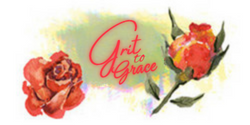Welcome to a safe, judgment-free space where healing becomes a reality. At Grit to Grace, we embrace your struggles and help you turn them into strengths — not by avoiding the hard places, but by learning to find power in them. Whether you’re navigating addiction recovery, trauma, emotional pain, or mental health challenges, you’ve found the right place.
This blog began with my own journey — one shaped by grit, resilience, and ultimately, grace. As a trauma survivor, recovering addict, and solitude seeker, I created this space to share not only my experiences, but the deeper truths I’ve discovered: that loneliness can become sacred, and healing doesn’t always happen in the noise — sometimes it begins in silence.
Grit to Grace is about transforming pain into purpose and isolation into inner strength. I believe it’s time we change the way we think about healing. Mental health matters more than ever, and it’s time to normalize the conversation — especially around the unseen battles so many fight alone.
Here, you’ll find more than just words. You’ll find a space to slow down, reflect, and reconnect — with yourself, your story, and your healing. This is a community built to support you as you rebuild from the inside out.
This space is for YOU — the fighter, the dreamer, the one who’s learning to rise in stillness. If you’ve ever felt broken, lost, or stuck, know this: grace meets you right where you are. Healing is possible — and it begins with embracing your solitude, not running from it.
Are you ready to turn your loneliness into your superpower?
Depression has a way of convincing us that isolation is both the cause and the consequence of our pain. We avoid people, retreat into ourselves, and assume…
We’re more digitally connected than ever—but many of us are silently drowning in loneliness. You scroll through Instagram, watching friends post about their parties, relationships, and adventures….
Trauma changes us. But what if it could change us for the better? As a graduate student in clinical mental health counseling—and someone who has walked through…
Emotional intelligence — the ability to recognize, understand, and manage our emotions — is one of the most powerful skills we can develop for personal growth, healthy…
Ever followed all the self-care trends perfectly…only to feel just as drained as before? Self-care isn’t always candlelit baths and green smoothies. Sometimes, it’s eating cold pizza…
I used to think time healed all wounds, people matured as they aged, and Elon Musk’s next Twitter update would finally make sense. Come to find out:…
Did you know that 72% of adults report feeling stressed by social media? (APA, 2017) In today’s hyper-connected world, mental health isn’t just a buzzword—it’s a necessity….
Childhood trauma can cast a long shadow over your life, impacting your relationships, self-worth, and overall well-being. But learning how to heal childhood trauma is possible, and…
I stopped journaling as a teenager the day my Asian mom read through my diary like it was the morning newspaper. (Love her… but Mom, seriously?) For…














